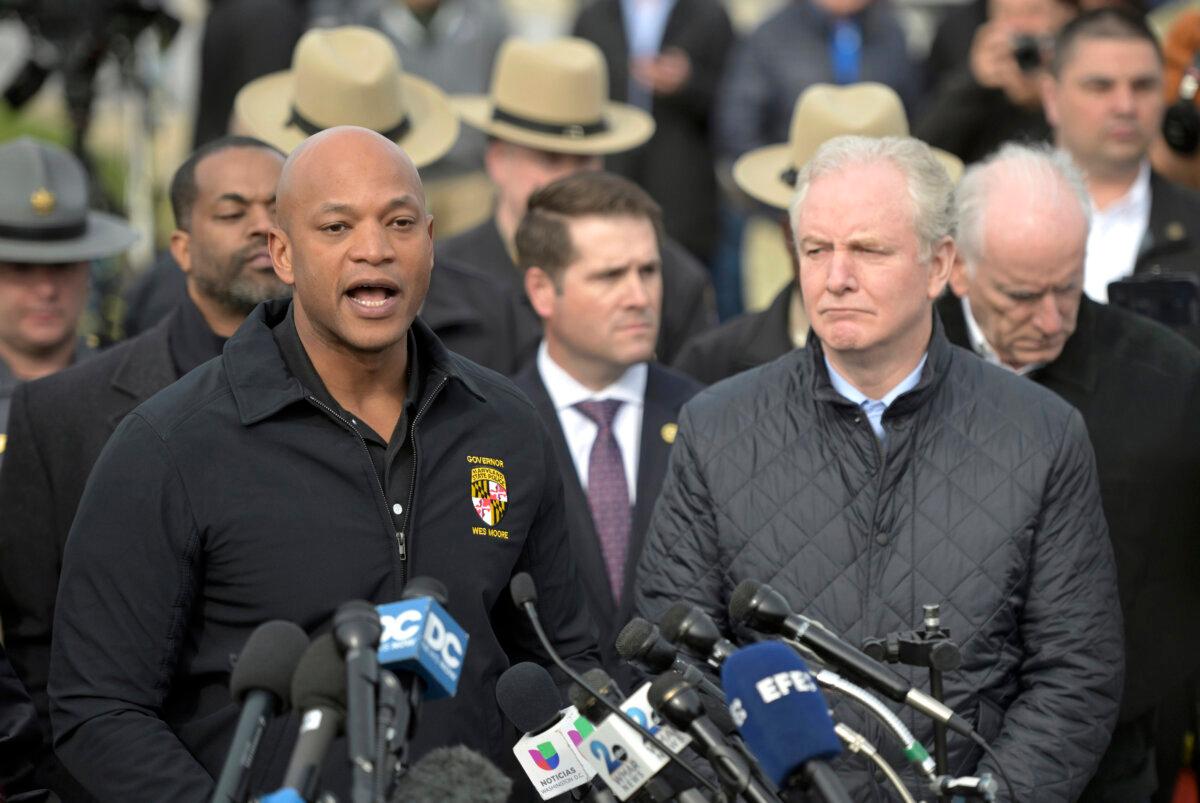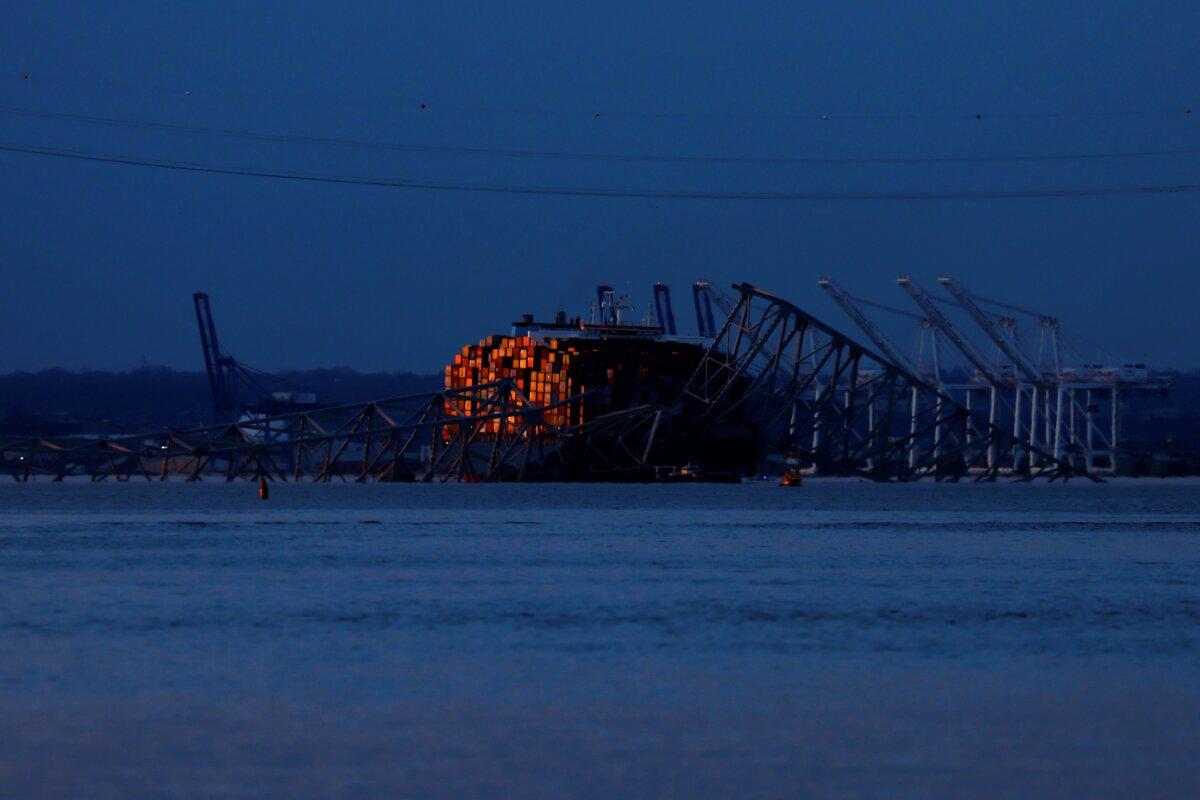One of the questions that will be addressed is why the Department of Transportation (DOT) is covering the costs of rebuilding the Key Bridge, despite the federal-state/local share law.
On April 5, when two congressional panels hold a joint hearing at the Port of Miami, it will be the first official gathering of federal lawmakers since a container ship caused the collapse of Baltimore’s Francis Scott Key Bridge on March 26. This incident resulted in six fatalities and the closure of one of the busiest ports on the U.S. East Coast.
The hearing is expected to cover the events leading up to the ship crash, the financial responsibilities for the reconstruction, and the overall state of U.S. ports and infrastructure. This meeting will be hosted by the House Transportation & Infrastructure Committee’s Coast Guard & Maritime Transportation Subcommittee, and the House Homeland Security Committee’s Transportation & Maritime Security Subcommittee, focusing on “Port Safety, Security, and Infrastructure Investment.”
Sen. Chris Van Hollen, Senate Minority Leader Mitch McConnell, Treasury Secretary Janet Yellen, members of House transportation and homeland committees, the House Freedom Caucus, and others have pointed out that the president’s pledge violates federal emergency-repair law for highways.
Under federal emergency highway funding guidelines, the government typically covers up to 80 percent of disaster costs, with some cost-shares reaching up to 90 percent. The Federal Highway Administration’s emergency fund, limited to $100 million annually, currently holds around $950 million, as per DOT.
State governments own and operate interstate highways, including the Key Bridge section of I-695 in Maryland. Maryland, with recent budget surpluses and a $2.5 billion “rainy day” fund, owns this stretch of the bridge.
The Maryland Transportation Authority (MTA), an agency of the Maryland Department of Transportation (MDOT), manages the bridge and collects tolls for maintenance and repairs.
According to the Peter G. Peterson Foundation, less than a quarter of the $232 billion spent on roads in the U.S. in Fiscal Year 2022 came from federal sources, with the majority funded by state and local taxes.
Sen. Van Hollen, Gov. Wes Moore, and Mayor Brandon Scott announced that up to 90 percent of the bridge’s reconstruction will be funded through FHA’s emergency fund, with the remaining 10 percent covered by state and local governments. Legislation is being prepared for the federal government to cover this remaining portion.

Fixing the Bridge
The Van Hollen/Cardin proposal may face challenges. Sen. McConnell stated in an April 1 radio interview that while the federal government will cover the majority of immediate costs, it should not bear the entire burden.
However, advocates such as Taxpayers for Common Sense President Steve Ellis and Bipartisan Policy Center’s infrastructure project director Andy Winkler support prioritizing immediate bridge repairs over financial disputes about responsibility.
Rep. Tom Cole, who chairs the House Appropriations Committee’s Transportation Subcommittee, expressed openness to fulfilling President Biden’s promise, stating that Baltimore deserves a comprehensive federal response.
Rep. Tim Burchett mentioned keeping an open mind about federal funding if the administration actively seeks insurance repayments and local agreements to reimburse the Treasury.

Reimbursement and Agreements
House Transportation & Infrastructure Committee member Rep.
Jefferson Van Drew (R-N.J.) stated on March 27 on Fox News that the federal government might need to cover costs upfront before seeking reimbursement from state and local agencies, as well as collecting insurance claims from private operators responsible. He emphasized the importance of a “pay-and-chase” approach to quickly recoup initial expenditures.
Secretary of Transportation Pete Buttigieg echoed this sentiment during a White House press briefing on the same day, promising accountability for any private parties found liable for the bridge accident. Treasury Secretary Yellen also made a similar commitment.
Van Drew highlighted how Congress swiftly approved $250 million to rebuild a Minnesota bridge following its collapse, emphasizing the bipartisan support historically seen in such situations.
An editorial in the National Review on April 2 criticized using the Minnesota bridge collapse as a comparison, pointing out differences in funding sources and circumstances. The federal government’s past use of a pay-and-chase disaster funding formula in various incidents was also noted.
Despite opposition from fiscal conservatives and some lawmakers, Van Drew stressed the urgency of restoring the bridge to prevent disruptions in supply chains due to inflation and policy issues.
Efforts to boost port infrastructure spending, including allocations from the Bipartisan Infrastructure Bill, were discussed in relation to modernizing America’s ports. Witnesses at a hearing in the Port of Miami raised concerns about the need for sustained investment in port upgrades and modernization.
Representatives from industry groups and associations testified before congressional subcommittees in Miami, addressing port safety measures and funding shortfalls. The importance of addressing port infrastructure needs to support economic growth and national security was a key focus of the discussions. John Konrad, the founder and CEO of gCaptain.com, a maritime commerce news and analysis site, expressed to The Epoch Times that the clearing of wreckage and the opening of the harbor could potentially be achieved “in weeks” with adequate funding and functionality of MARAD and the Coast Guard, as well as the availability of heavy lift, salvage, and offshore construction ships. Unfortunately, he noted, these resources are currently lacking.
Rep. Jeff Duncan (R-S.C.), a member of the House Transportation & Infrastructure Committee, emphasized the need for prioritizing critical infrastructure needs such as those in Baltimore over unnecessary expenditures. He stressed the importance of addressing the country’s massive debt before allocating additional funds for domestic infrastructure projects, suggesting that any funds earmarked for rebuilding the Francis Scott Key Bridge should be redirected from President Biden’s proposed infrastructure bill.
The situation highlights the urgent need for strategic allocation of resources and a focus on essential infrastructure projects that benefit the country as a whole.
Source link








